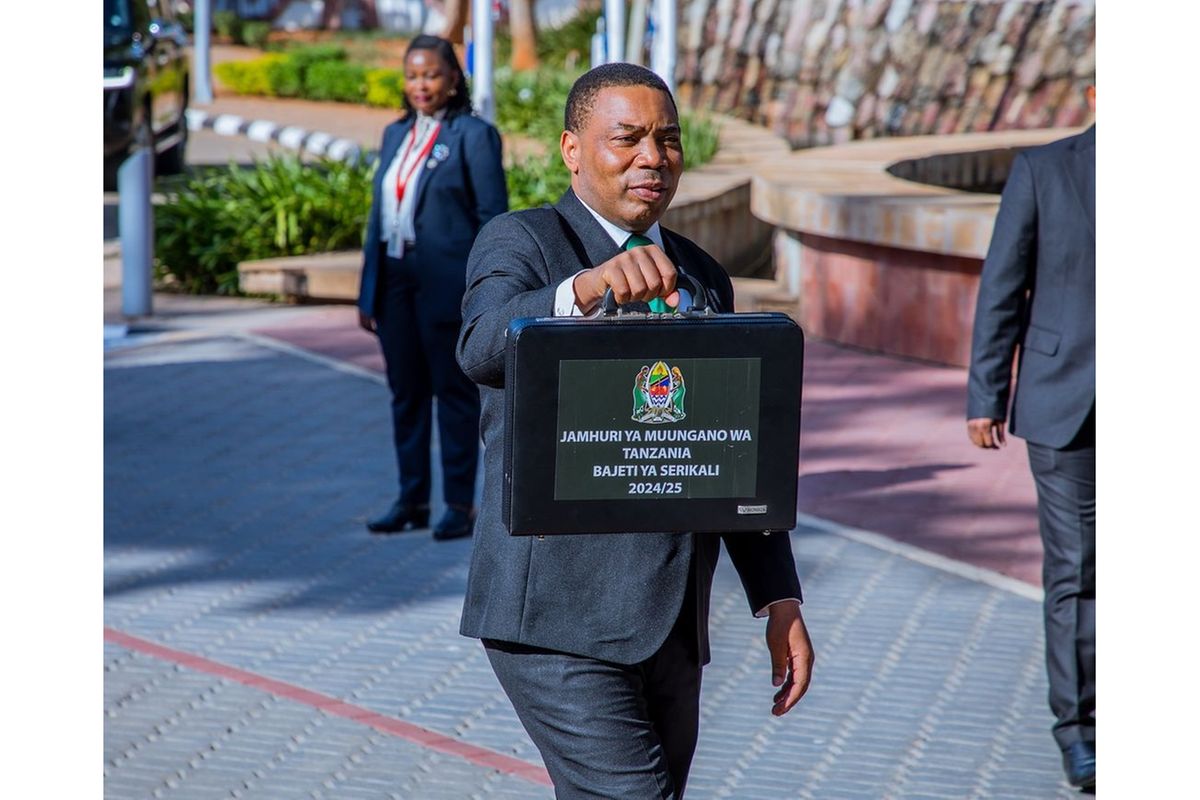
Tanzania’s upcoming budget is set to increase to approximately $20 billion
Tanzania aims to boost its annual budget by 11.6 percent in the 2025/2026 fiscal year, increasing it from Tsh49.35 trillion ($18.98 billion) to Tsh55.06 trillion ($20.4 billion at the current exchange rate), while ensuring that the domestic financing ratio remains above 70 percent.
Finance Minister Mwigulu Nchemba has stated that internal revenue projections have increased from Tsh34.6 trillion ($12.79 billion) for 2024/2025 to Tsh38.9 trillion ($14.4 billion), while total contributions from external sources are anticipated to generate Tsh16.02 trillion ($5.93 billion).
Dr. Nchemba informed the National Assembly during his 2025/2026 budget framework presentation on November 1 that anticipated aid contributions from development partners are limited to Tsh 1.02 trillion ($377.77 million), with concessional loans amounting to Tsh 5.6 trillion ($2.07 billion) and commercial loans from both domestic and international sources totaling Tsh 9.4 trillion ($3.48 billion).
He stated that the objective was to guarantee that domestic revenues would increasingly support larger portions of annual national budgets in the future, relying on ongoing efforts to improve collection systems and considering possible shifts in macroeconomic fundamentals. “The government will persist in executing a medium-term revenue collection strategy designed to enhance domestic revenues and lessen dependence on loans,” the minister stated.
Tanzania’s external debt reached $32.89 billion in September 2024, an increase from $32.70 billion in August, as reported by central bank figures.
The country continues to hold a strong position in international credit ratings.
In March 2024, Moody’s upgraded Tanzania’s long-term issuer ratings from B2 to B1, leading the way among other East African Community (EAC) partner states. This upgrade was reconfirmed in September, with the agency highlighting several factors, including the country’s ability to maintain a “moderate” debt burden.
In June, Fitch Ratings assigned Tanzania a B+ rating with a stable outlook, highlighting “strong GDP growth projections (of 5.4 percent for 2024), ongoing structural reforms, and improved fiscal health.” All of this suggests that the country may receive more external aid than initially projected in 2025/2026.
Over two thirds (67.4 percent) of the budget expenditure plan for 2024/2025 is based on domestic revenues, with the Tanzania Revenue Authority assigned a collection target of Tsh 29.41 trillion ($11.31 billion) for the entire fiscal year.
Last month, TRA reported collection figures of Tsh 7.79 trillion ($2.88 billion), exceeding the first quarter target (July to September) and suggesting that the final goal was within reach.
Recently, the agency has faced significant criticism from both domestic businesses and foreign investors regarding various issues in tax administration and collection. This has resulted in the establishment of a presidential commission to evaluate the entire taxation regime.
The commission commenced its work on October 4, and it is still uncertain when it will complete its assignment. Dr. Nchemba’s budget plan for 2025/2026 projects recurrent expenditure to total Tsh 38.6 trillion ($14.29 billion) and development expenditure to reach Tsh 16.4 trillion ($6.07 billion).
Priority expenditure areas mentioned encompass the organization of Tanzania’s general election set for October 2025; however, the framework does not specify any particular allocations for this event.
All Categories
Recent Posts
Tags
+13162306000
zoneyetu@yahoo.com



